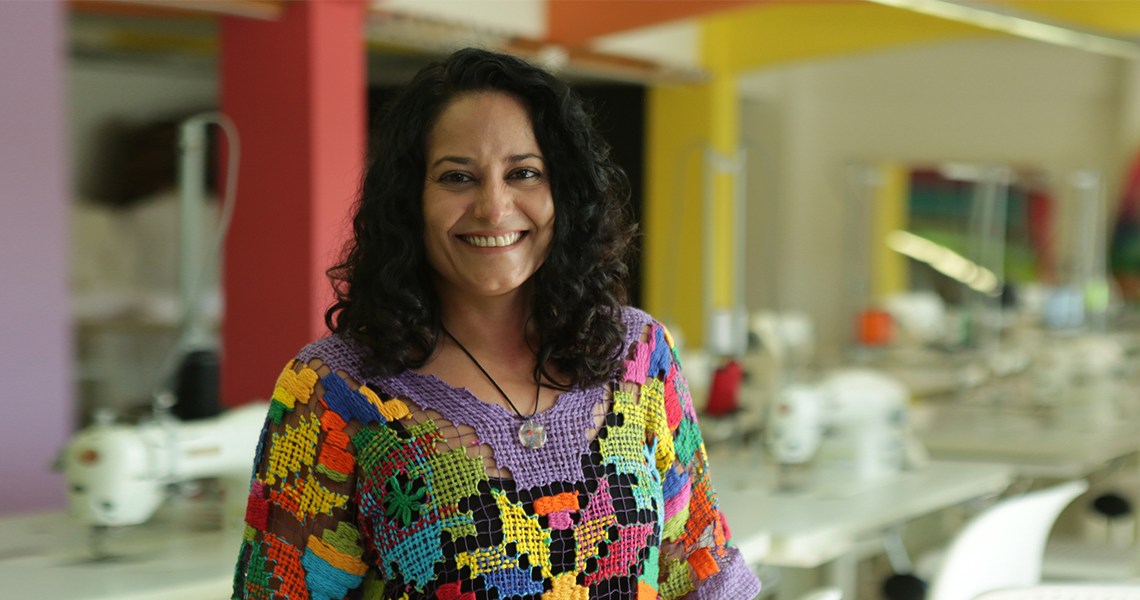For the sustainable fashion movement to make a lasting difference, consumers and brands need to be conscious of where their clothing came from in a real, earthy sense.
That means looking beyond the store where they were purchased or the fashion house that designed them — even beyond the factory where they were produced. They need to know about the very fields where the fibers are grown — and the people who plant and harvest them.
But much like horrific abuse within the garment production industry, farm workers, especially women who labor in the fields and cultivate these textiles, face their own set of similar maltreatments: they are invisible to society and face challenges to access basic human rights.
According to the National Farm Worker Ministry, female farm workers in particular are usually given the least desirable and lowest-paying jobs in the fields and are often the first workers to be laid off, facing a hostile and sexist work environment.
While practices within garment factories and supply chains are beginning to be uncovered and challenged — such as Gap releasing their list of global factories in 2016 in an effort to encourage transparency — the abuses that occur in the field aren’t nearly as discussed.
However, agrarian reform activist Andrea Sousa, born in Sobral, a city in the state of Ceará, Brazil is shedding light on these dire issues. Since 2005, Sousa has been working to spread awareness and provide a platform for female farmers in the sustainability movement.
“I got to know and live among families that were using transitional organic farming practices on their family-run ecofarms,” Sousa explains. “And through my activism and my day-to-day work in this field, I had already witnessed how the work of female farmers was devalued and invisibilized.”
Ad position: web_incontent_pos1
Nine years later, she came to work at ESPLAR, a non-profit NGO headquartered in Fortaleza, capital of the state of Ceará in Brazil, encouraged by the organization’s commitment to organic farming and gender issues from a feminist perspective.
Along with ESPLAR, Sousa now runs Organic Intercropping with Mocó Cotton: an Alternative in the Era of Climate Change, a project sponsored by the C&A Foundation.
“The goal of the project is to increase the organic yields of family farmers — including women farmers — producing certified products for the organic/fair trade market. It prioritizes their involvement in spaces where they can market and profit from the products produced on their individual family farms.”
And brands have taken notice of this move toward sustainably sourced materials. In 2016, fashion retailer Zara launched a new line made with environmentally friendly materials, including organic cotton, recycled wool and Tencel, a recycled fabric derived from wood cellulose. Not to mention sustainable shoe brand Veja — a favorite of Meghan Markle and Emma Watson — relying on ESPLAR as their organic cotton supplier.
For large brands to embrace the sustainability movement — especially those that are known for fast fashion — bodes well for Sousa’s work, as well as the livelihood of the farmers producing these raw materials.
Ad position: web_incontent_pos2
“It is essential that more people around the globe learn about organic farming and about the many ways of sustainably coexisting with the natural environment,” says Sousa. However, this change doesn’t just involve shifting toward sustainable practices such as recycling or novel farming methods.
“People must also come to recognise that organic farming is a powerful expression of women’s resistance and of the resiliency of traditional peoples and peasant families,” she says. Only once these factors are recognized can the true goal of the sustainable farming and the fashion movements it supports be attained: providing stability and hope for both our planet and the people who inhabit it.




